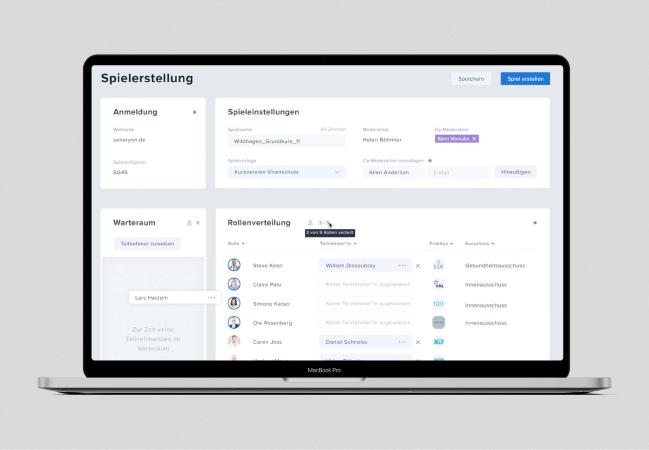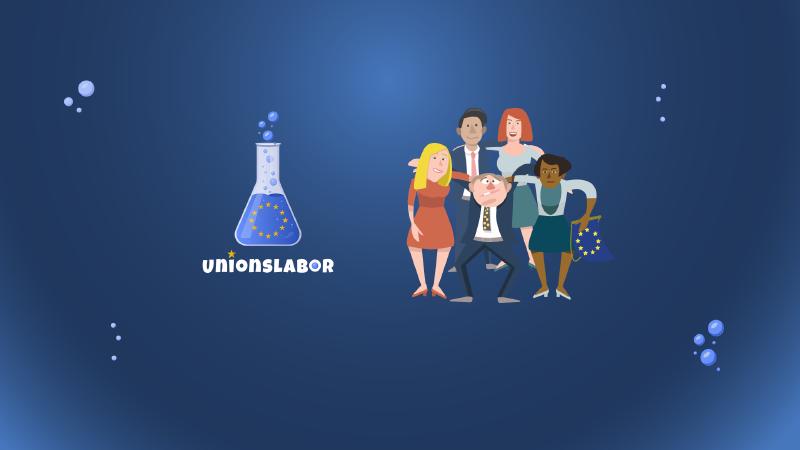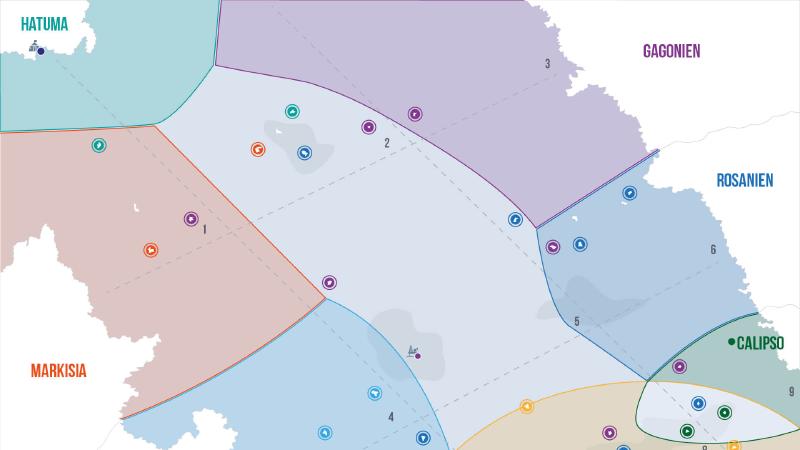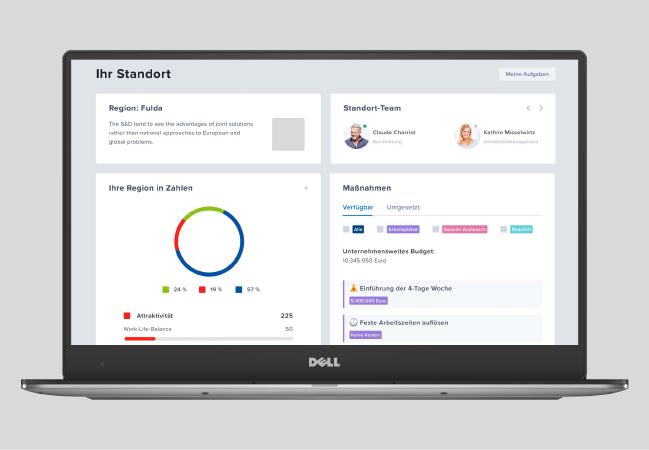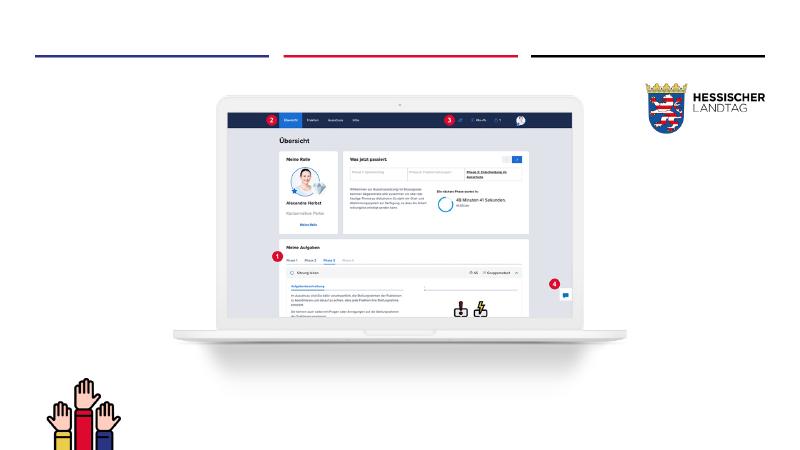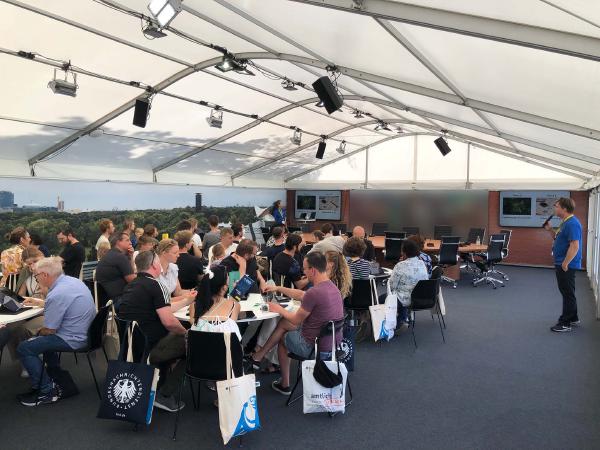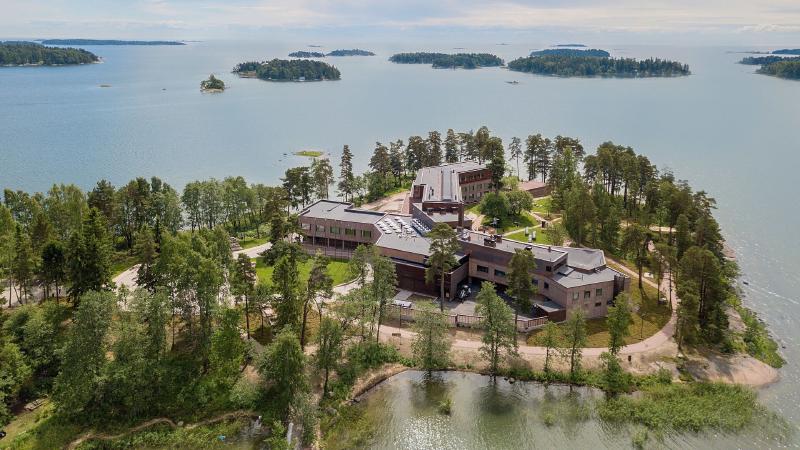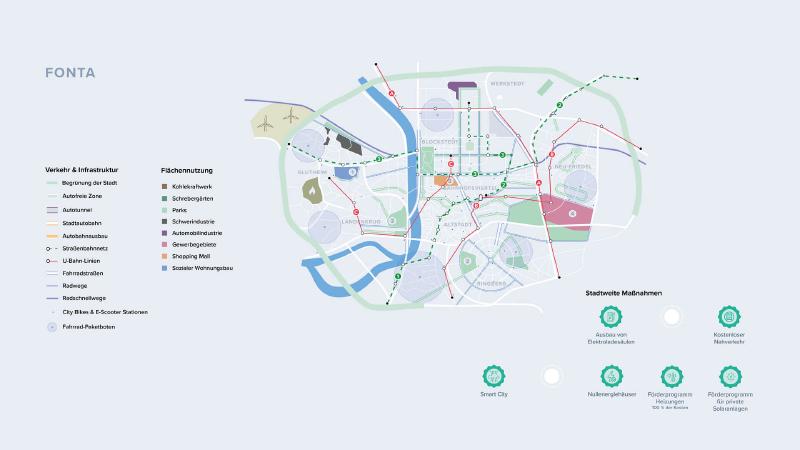Introduction to Simulation Games: Realistic Simulations for Education and Training
Since our founding, simulation games have been our core competency. From experience, we know: Playful experiences of political contexts lead to more sustainable learning and are enjoyable! In the best case, participants understand how politics work and develop empathy for other perspectives.
The Versatility of Simulation Games: Issues, Solutions, and Compromises
The chosen topic and the associated question are considered from different angles. The core of a simulation game is usually an open—either real or fictional—problem that participants have to solve together or react to. This especially highlights the difficulty and necessity of finding compromises while considering different interests. Since the outcome of the game is not predetermined, participants can look for various solutions, test their negotiating skills, and make decisions themselves.
Changing Perspectives through Simulation Games
The action-oriented approach of simulation games—the direct experience of political decision-making processes—leads to a deeper understanding of political operations and decisions among participants. At the same time, putting oneself in possibly unfamiliar or disagreeable positions can promote reflection on one’s own views.
Over 100 Different Simulation Games on Sociopolitically Relevant Topics
Since 2005, we have developed well over 100 simulation games for sociopolitically relevant topics suitable for almost all age and target groups. Our range includes a wide variety of games from the local to the global level, including the areas of Democracy and Society, Climate and Sustainability, and European Politics.
Each year, we develop more than 10 new simulation games, any topic of sociopolitical relevance is conceivable. We welcome inquiries of all kinds, as we are convinced that simulation games are a very lively and effective method for political education.

